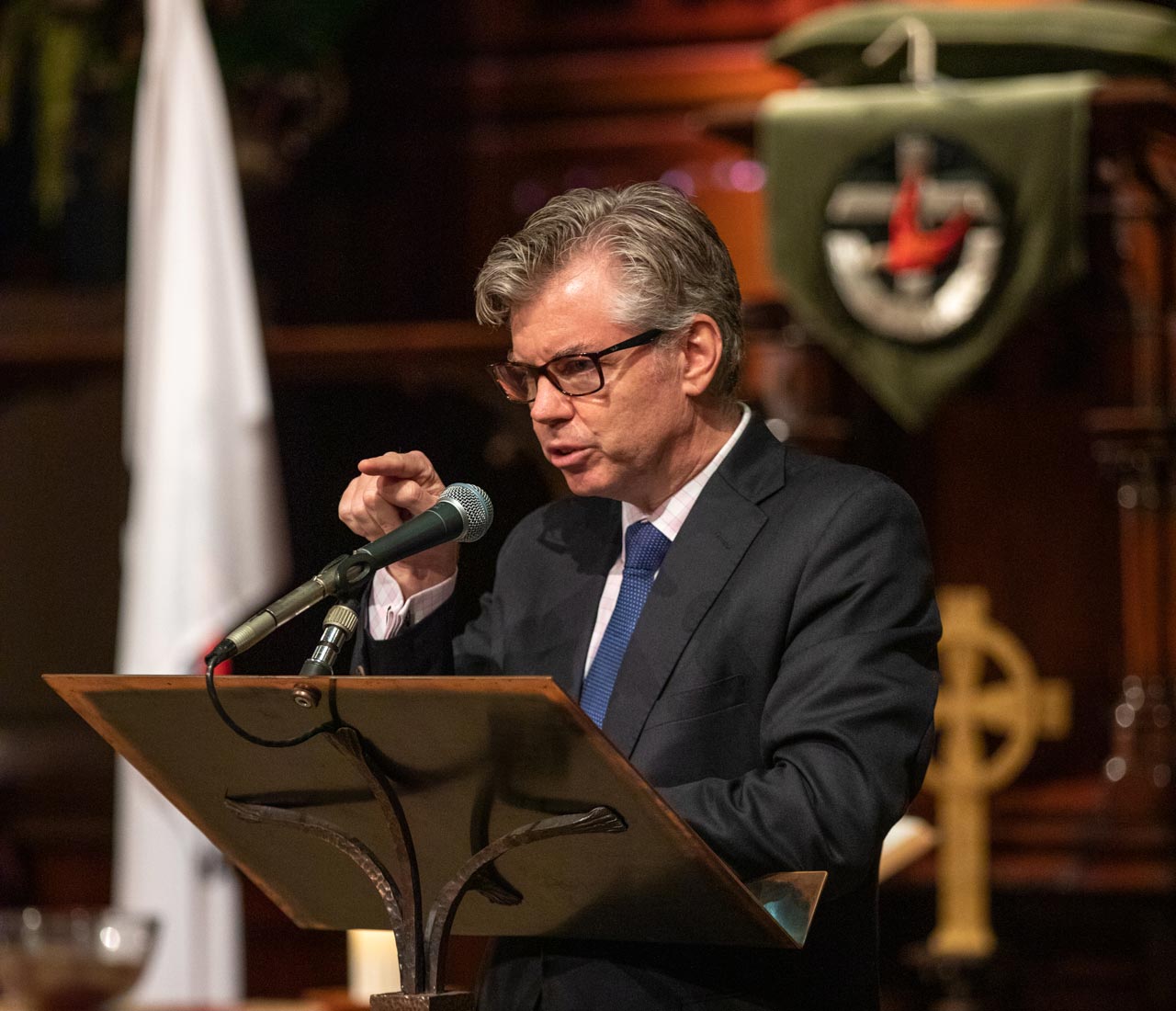<< Back to Lion December 2020 Homepage
Principal's lines

It has been the practice over most of my time working at Wesley to have a theme for the year. The theme for this year was ‘Sustainable futures,’ taken from the Strategic Framework.
Sadly, this theme was prescient, given the bushfires of last summer and the pandemic that has consumed the world. Last year’s theme was ‘Change and continuity’ – on this theme, I think I was meant to represent both. Our annual themes provide us with a context for the year, a way in which we can overcome the urgent and try to think about the important.
They have been, over the years, a mixed success.
The themes taken from ancient texts have had the most resonance for me. Some years ago, the chaplains suggested as a theme a quote from the Bible, Romans Chapter 12, Verse 5: ‘Members one of another.’ This was a wonderful suggestion, and prompted much reflection about the nature of community, of connection and of service to each other and the broader community. It was a superb antidote to the narcissism of emerging social media and a reminder of the importance of real social connection. It worked beautifully as a theme.
How do we choose a theme for 2021? This year has provided such challenges to the way we educate, the way we live. A theme that is driven by the language of corporate strategy seems unequal to the task. We need a theme that speaks to universal truths, that has a timeless quality, that can be embodied within the College and that will inspire our charges to consider how they may reshape our world, as will become their responsibility.
In the end, the theme for 2021 was obvious: Sapere Aude.
Sapere Aude, as many of you would know, is the motto of Wesley College. It was chosen by the founders of the College before it opened its doors. It has somewhat fallen out of use. When I went through the College, we knew what it meant, at least loosely. I am not sure the same could be said now. As a measure of its lack of currency, it was only mentioned in the most recent history of Wesley College three times, and one of those times was to comment on how it had fallen out of use. It lives on largely in the name of the Sapere Aude Bequest Society.
Yet, it is the most wonderful message for a school, and for students, in the early 21st century. It loses nothing from having been written in 20 BCE. It was written by Horace as part of a moral fable about a fool waiting for a stream to pass before crossing. It is preceded by a phrase usually translated as, ‘He who begins is half done.’ Sapere Aude is usually translated as ‘Dare to know.’ It can be interpreted (and usually is in the Wesley context) as ‘Dare to be wise.’ When I went to Wesley, both were used. There is a third, more colloquial translation, ‘Dare to think for yourself.’
These three translations make a wonderful progression. Dare to know, dare to think for yourself, dare to be wise. In a sense, they mimic the stages of the creation of wisdom. Knowledge is nothing without the ability to interpret it meaningfully. Only by doing so can we gain wisdom.
Education, in this time and place, is too often reduced to a measurement of achievement, typically against others, in some form of test. The acronyms NAPLAN, IB, VCE, ATAR come to dominate the discussion. All of them speak to placing young people into a rank order and reducing education to competition. We have an opportunity to start a new conversation about education, one which puts creativity, thinking, originality, at the core.
We live in a world in which those who are young now will be charged with making great change. They will need to know much. They will need to think for themselves. They will need wisdom.
All of this is summed up in two words, written by a Roman poet more than 2,000 years ago. It is a wonderful theme for the College for 2021.
Sapere Aude.
Nick Evans (OW1985)